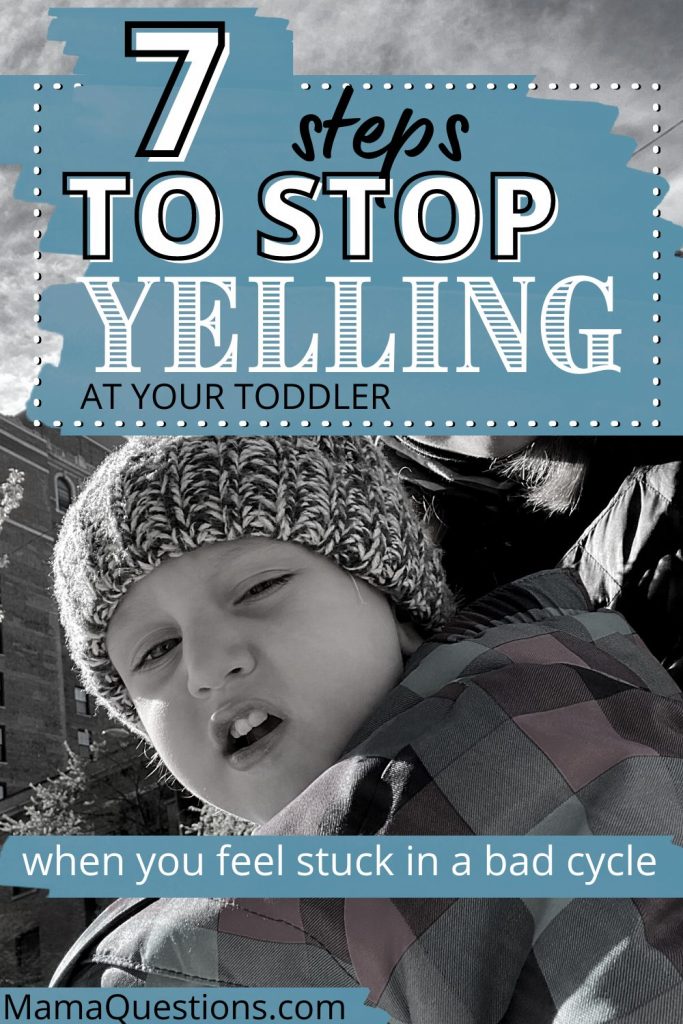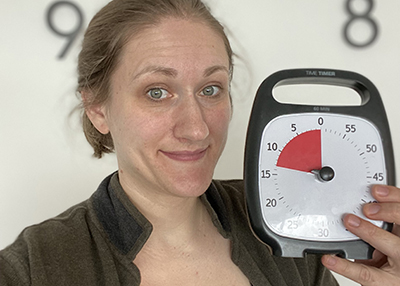You Can’t Stop Yelling When The Kids Doesn’t Listen
Like all moms, you are working REALLY HARD trying to parent well behaved kids. If you are hitting a wall too often with them and find yourself yelling, it is time to step back to re-evaluate how to move forward. That is why I am sharing these 7 ways to stop yelling at the kids, as a first step towards a more peaceful(-ish) home.

We all feel a sense of satisfaction when others compliment our little ones. All any parent wants is for their child to be successful in life, whatever shape that takes. We feel the pressure to get them there but the reality is sometimes we can’t even get them to follow basic requests without yelling NOOOOOO or having epic meltdowns.
All of a sudden you envision this 2yo as a 20yo on the floor raging and yelling because they didn’t get what they wanted right away. You freak out and worry you have created a monster. Your spiraling thoughts urge you to QUICKLY curb the behavior and you YELL.
Your toddler stops and becomes silent. They give you the stare. The tension in the room is high. Now you are doubting yourself and all your life choices up to this point.

Isn’t There Another Way Without Yelling?
Yes there is! As parents we need to remember that our children look up to us. To them we are the example of how to behave in various situations. It’s only normal that if they see you yell when things don’t go YOUR way, they mimic that behavior. Stopping the habit of yelling can be easier said than done. How do you stop the urge to yell when push comes to shove and your in the heat of the moment?
YOU MIGHT ALSO BE INTERESTED IN:
- Creating Boundaries with Your Child: A Refreshing Approach
- How to Handle a Newborn and Toddler – 23 Ideas to Use Today
- 7 Best Gentle Parenting Books To Help With Your Stubborn Toddler
- 11 Reasons Why Spanking Does Not Work- And What To Do Instead
Follow these 7 Easy Steps to Stop Yelling at the Kids
Disclosure: Some articles on this site may contain affiliate links, meaning, at no additional cost to you, Mama Questions may earn a commission if you click through and make a purchase. As an Amazon Associate we earn from qualifying purchases.
1. Understand Basic Brain Function
What happens in the brain when we get upset? What triggers it? If you understand that there’s more going on in their brain than simply not wanting to listen to you, it will be easier to stay calm.
There are 4 books in particular helped construct my understanding of our toddler Luca’s behavior (like us on facebook to receive the list below). Now when he has big emotions I am able to better assist him while remaining gentle and collected. If you haven’t read these books I HIGHLY recommend you get them now. I like listening to them in form of audiobooks.
Like us on Facebook to unlock the 4 Best Books on Gentle Parenting
2. Is It Necessary?
Ask yourself if it’s really that important that they follow your instruction at that moment. We can easily get frustrated when our kids won’t follow along. Remembering that their wants for the day are equally important as yours, can help ease tensions. If it’s safety-related you should pick them up or take the object from them, Instead of yelling. Don’t ask for cooperation in the heat of the moment.
3. Put Yourself in Their Shoes
Their main job at this age is to explore explore explore, in order to learn their world. Part of that is experimenting in social settings which includes pushing boundaries. They should be defying you as they study how you react. You can show them you disagree with their actions by saying for example: “It is important to take care of your toys. You should put them down gently” and then do so yourself. This is a great alternative that doesn’t require yelling or getting worked up.
==> 3 Ways I Get My Toddler to Listen to Me – even when they Don’t want to<==
4. Lower Your Expectations
Their brain is still underdeveloped. Although we are all born with our distinct personalities, many “unwanted” child behaviors such as ignoring, meltdowns, picky eating, and hitting are NORMAL for little ones. You should still stop your kid from hitting, by blocking their hand while explaining that you can’t let them hit you, but yelling “STOP” is not a good long-term strategy to curb the behavior. Being assertive without losing your cool can be done. It just takes practice.
==>How To Love Being A Mom – To A Toddler<==
5. Be Self-Aware
Why are their actions triggering YOU? Often we have pre-determined ideas of how our life should look like including our children’s behavior. These are often “rules” we learned growing up. Your family history might be hindering you from being present with your kids. Try rethinking the rules and meet them at their level.
Remember that unwanted behaviors in kids are normal, and are often not a sign of long-term problems. How you react in turn can greatly improve or hinder your kids from forming healthy behaviors in moments of stress.
6. Stop Them Before You Get Too Mad
Sometimes (maybe always) your kids are doing something you’ve asked them to avoid. Like throwing a ball repeatedly against the wall. If they are not listening remove your toddler from the situation. Although children have the best of intentions, they sometimes are just not able to listen. This often happens if their fuel tank is low.
Physically removing them is the best alternative. Do this early on though! If you give too many warnings it will be harder to keep your cool.
7. Take a Break
Moms often try to do it all, but remember that you are only human. If you feel your blood boil or you are simply extra irritated, it could signal that you need a break. Stopping the urge to yell is not about self-control, it is about self-care. Figure out what activities fill your cup and make sure you have a few times during the day to unwind. (I like to have preset times I can look forward to during the day).
==> Start Your Self Care Journey with these 7 FREE Ideas You Can Do From Home<==
If you don’t have someone who can watch the kids for 30minutes here and there while you take a break, find activities the kids are able to do on their own (I know super challenging). Using a time timer has been really helpful with our super clingy toddler. It’s a visual element that allows the kids to understand how much time they need to wait until mommy is ready to play again, (or other situations where a transition takes place).

Everyone Yells Sometimes, But Don’t Make it a Habit
We all lose our temper at times, even when we have the best of intentions. It can sometimes even be good for our kids to see that their parents have raw emotions too. However, if yelling has become an every day occurrence and both you and your kids seem exhausted by broken communication, the above steps are a great way to start healing and moving forward.
If you want to stop yelling at the kids, but are worried its too late and the damage has been done, I will stop you right there! It is never too late to start to form positive habits. Take one day at a time and if you implement the above suggestions, I promise you will start seeing both you and your children be less stressed.



My little one is going through the terrible twos right now and it feels as though everything we do just won’t get her to snap out of it. You’re absolutely right about lowering the expectations and trying to see things from their point of view, but it isn’t always the easiest. Great tips!
Hi Michelle, thanks for commenting. Your absolutely right that sometimes as parents it’s hard to keep our cool. I think that’s where self care comes into play. As soon as I feel flustered by my toddler’s mood it’s usually when my cup is already empty. Like the airplane communication before take off: put your air mask on first before you put your own 😉